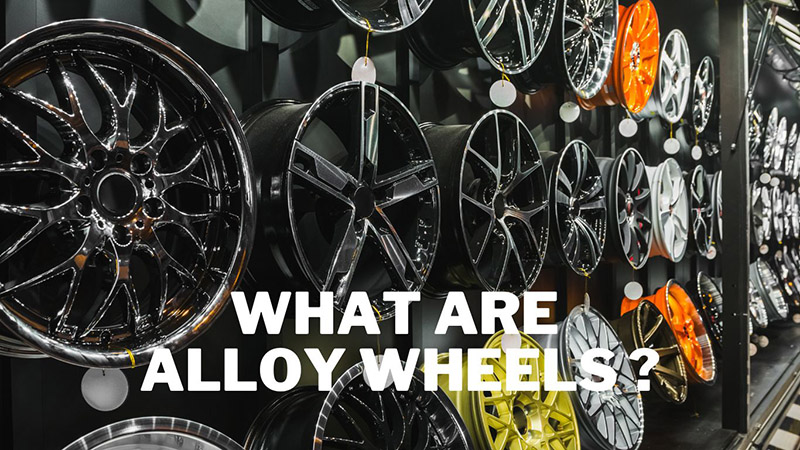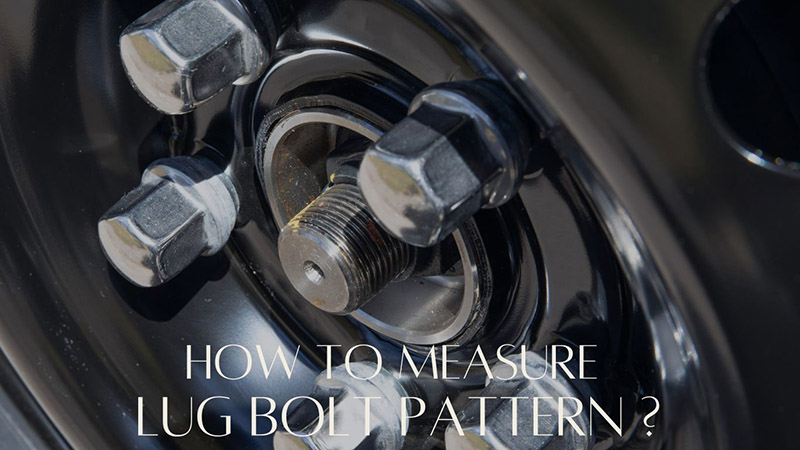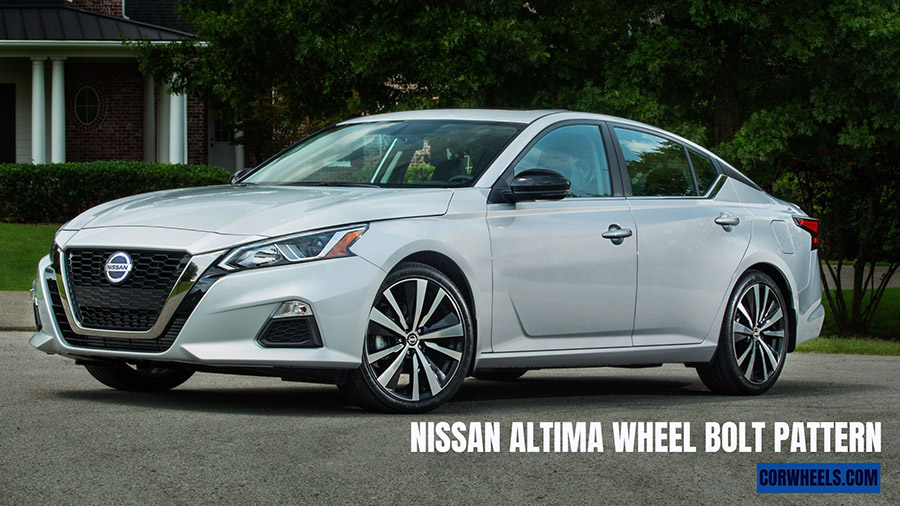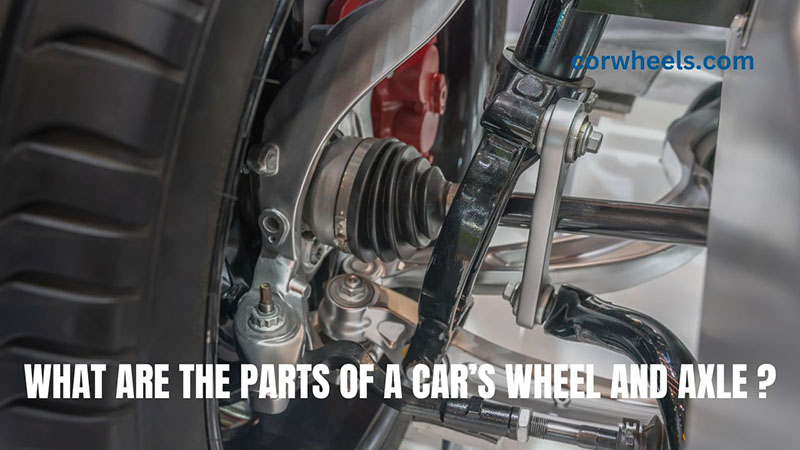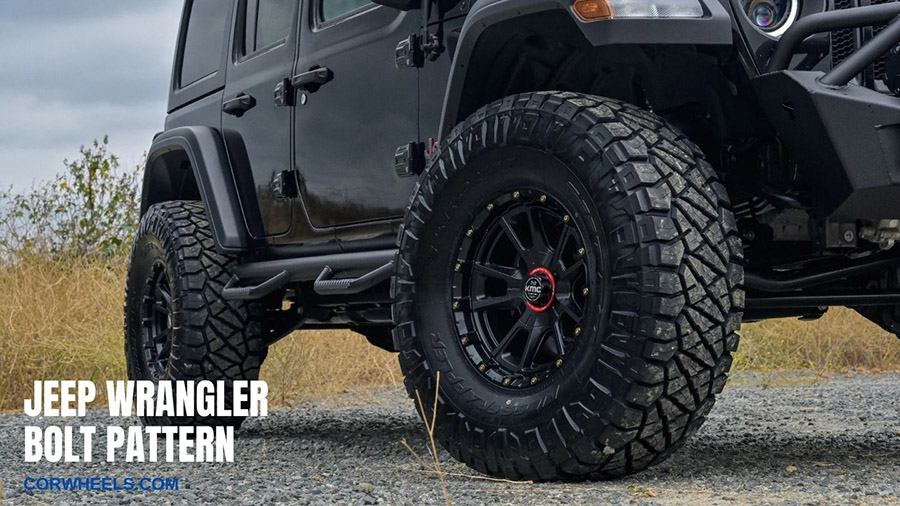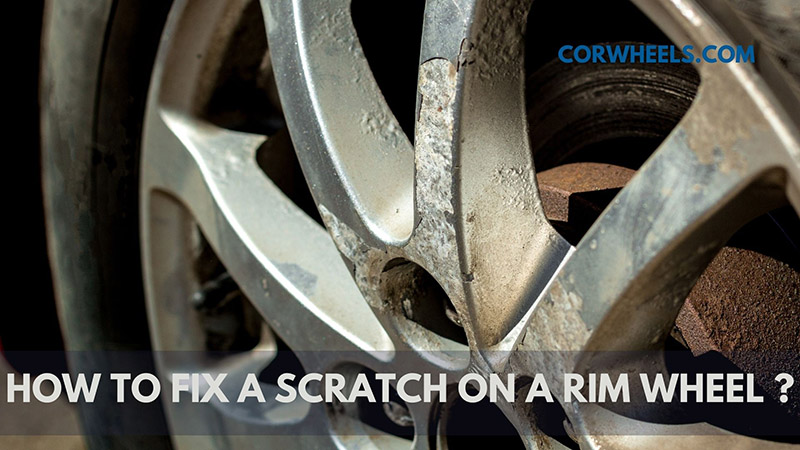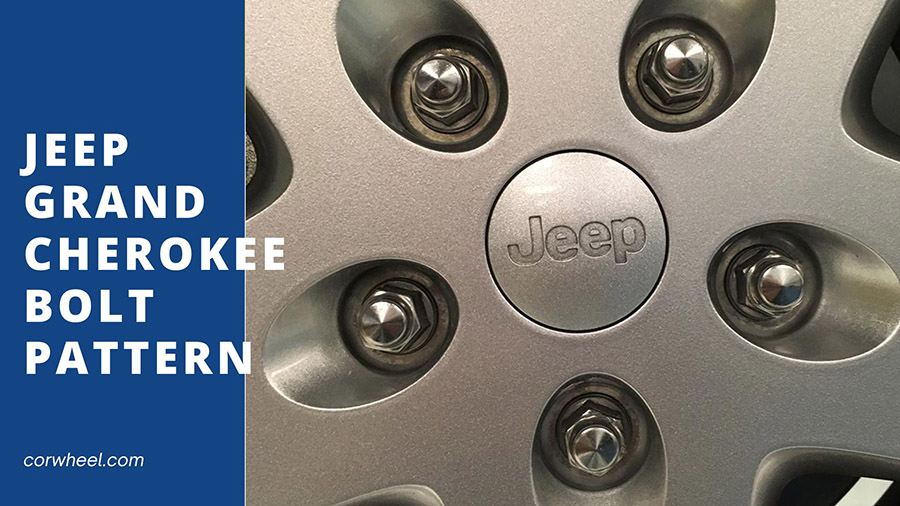Alloy wheels have gained significant popularity in the automotive industry due to their advantages over traditional steel wheels. Simply put, producing alloy wheels means that they are made from a combination of metals, primarily aluminum or magnesium alloy wheels.
These wheel rims are specifically designed to offer improved performance, enhanced aesthetics, and better heat dissipation. Let’s dive deeper into their features, benefits, and considerations to help you understand why they have become a sought-after choice for many vehicle owners.
In this article:
What Is An Alloy Wheel?
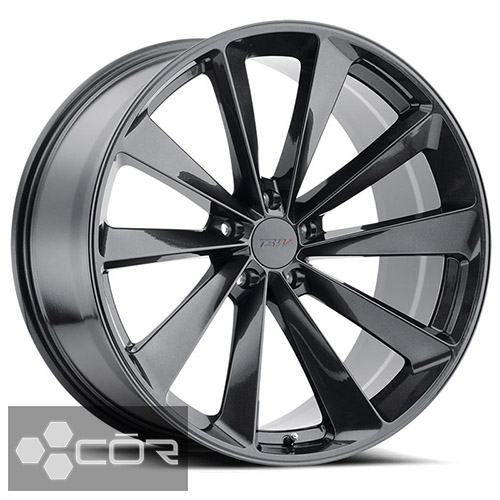
An alloy wheel is made from a blend of aluminum or magnesium and other elements, offering a stronger construction, superior heat dissipation, and more visual appeals while being lighter. There are also various styles to choose from.
Their lightweight nature also provides several benefits, including improved fuel efficiency, better handling, and enhanced braking performance. Plus, the design versatility allows for various eye-catching styles, finishes, and spoke patterns, allowing you to customize your vehicle’s appearance.
They are also known for their durability and resistance to corrosion, making them a durable option.
Types Of Alloy Wheels
Alloy wheels come in various types, but are mostly divided into three: forged, cast (low-pressure, high-pressure, or gravity), or hybrid. But in terms of materials, you will see there are aluminum or magnesium alloy wheels.
Forging
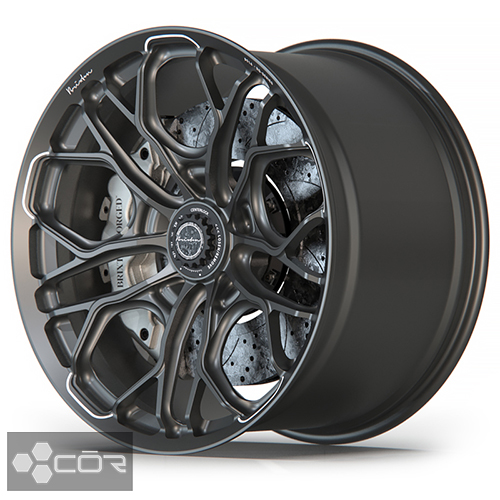
The forging process involves shaping the wheel by subjecting the metal to high pressure and heat, resulting in a solid and dense structure. These tire rims are typically lighter than other types of wheels, offering improved performance and handling.
They are also highly resistant to impact and stress, making them suitable for high-performance and sports cars.
Low-Pressure Die Casting
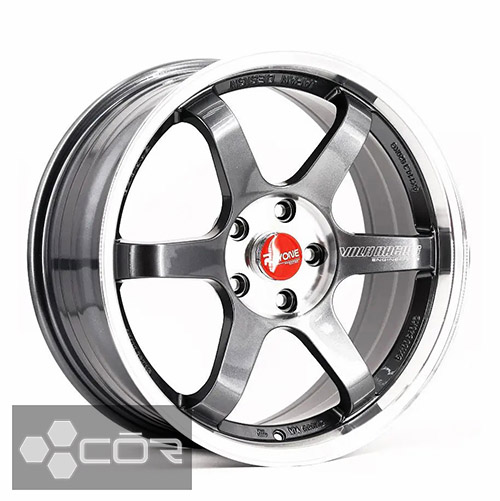
This manufacturing process involves pouring molten aluminum into a mold under low pressure. Low-pressure die-cast wheels offer good impact strength and extra weight characteristics.
They are cost-effective to produce and are often used in mass-production vehicles. These wheels have a smooth finish and can be easily customized with various designs and finishes.
High-Pressure Die Casting
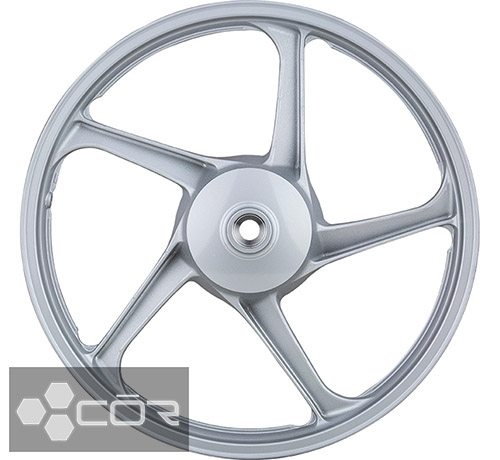
These are made by injecting molten aluminum into a mold under high pressure. This multi-step process allows for intricate designs and complex shapes. These wheels offer a good balance between strength and weight, making them suitable for a wide range of vehicles.
Gravity Casting
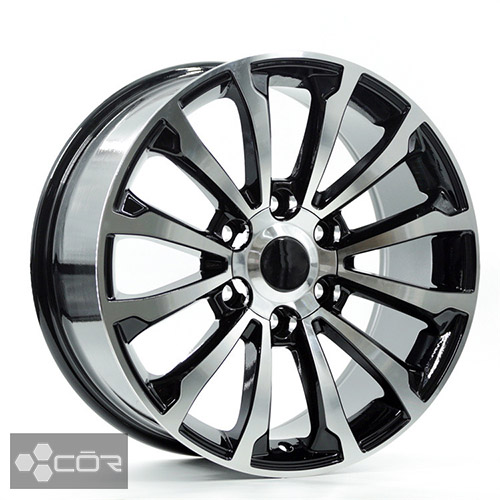
The gravity casting method involves pouring molten aluminum into a mold using gravity to fill the cavity. This complicated process is economical and produces standard wheels with a fine surface finish. Gravity-cast alloy wheels are relatively strong and widely used in many vehicles.
Assembly
Some alloy wheels are produced through an assembly process where they combine different components. These aluminum wheels may have a combination of forged or cast parts, allowing for a customized design and enhanced performance.
Alloy Wheel Pros And Cons
These alloy wheels are more appealing, lighter, can resist corrosion, and dissipate heat better, but all these perks come at a higher price. Also, to keep the shiny look, regular maintenance is a must.
Pros
- Lightweight: They are lighter, which improves overall vehicle performance, including handling, faster acceleration, and fuel economy.
- Aesthetic Appeal: Alloy wheels offer a sleek and stylish look that can enhance the overall appearance of your vehicle. They are available in various designs, finishes, and spoke patterns, allowing you to personalize the visual appeal of your car.
- Better Heat Dissipation: They have superior heat dissipation properties. This means they can dissipate heat more effectively, reducing the risk of brake fade and prolonging the life of your brakes.
- Corrosion Resistance: Alloy wheels are generally more resistant to corrosion and rust. This is particularly advantageous in areas with harsh weather conditions or where road salt is used.
Cons
- Cost: Alloy wheels are typically more expensive. The higher manufacturing cost and premium materials contribute to their higher price tag.
- Vulnerability to Damage: They are more susceptible to damage from impacts, potholes, and curbs. They can crack, bend, or develop cosmetic damage, requiring repairs or replacement.
- Limited Off-Road Capability: They may not be as suitable for off-road driving or rough terrains due to their lighter and less robust construction. They may be more prone to damage in such conditions.
- Regular Maintenance: Alloy wheels require regular maintenance to preserve their aesthetic appearance. They are more prone to brake dust accumulation and require proper cleaning to prevent corrosion and maintain their shine.
Are They Worth Using?
Yes, alloy wheels are worth using for many drivers. They offer advantages such as improved performance, lighter weight, enhanced aesthetics, better heat dissipation, and corrosion resistance.
While they may come at a higher price than steel wheels, their benefits often outweigh the disadvantages of alloy wheels. Ultimately, the decision to use these wheels depends on personal preferences, budget, and specific driving needs.
Alloy Vs Aluminum Wheels
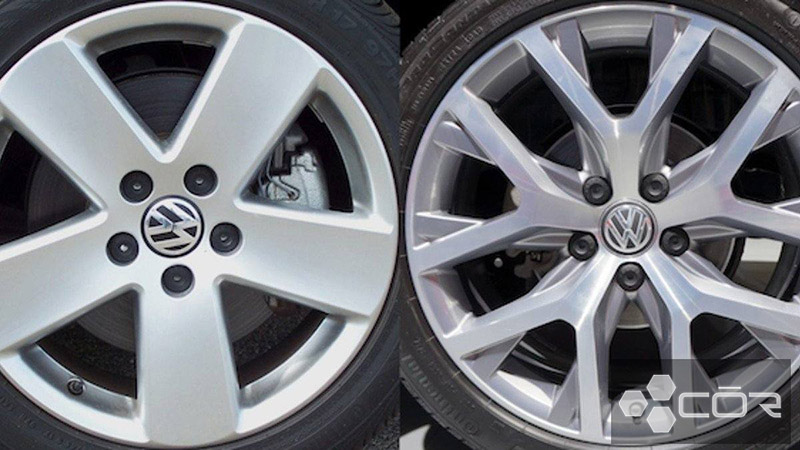
When it comes to choosing wheels for your vehicle, you might come across the terms “alloy wheels” and “aluminum wheels.” While these terms are often used interchangeably, there is a slight difference between them. Alloy wheels are made from a combination of metals, including aluminum, while aluminum wheels are made solely from aluminum.
Both options offer advantages and considerations. Alloy wheels are known for their lightweight construction, better heat dissipation, and stylish designs. On the other hand, aluminum wheels are also lightweight and are generally more affordable, but they deliver less strength.
So they may be less resistant to impact damage compared to alloy wheels. Ultimately, the choice between alloy and aluminum wheels depends on factors such as your budget, desired performance, and aesthetic preferences. Consider consulting with a wheel specialist to determine which option is best suited for your specific needs and driving conditions.
Frequently Asked Questions
Which Is Better, Alloy Or Steel?
It depends on you and your needs. Alloy wheels are generally lighter, offer better performance, and have a more eye-catching appearance. They are also more resistant to corrosion. Steel counterparts are typically more affordable, durable, and better suited for rough terrains or heavy-duty use.
Does Alloy Get Rust?
Iron-containing alloys rust if they are exposed to air. All alloys are susceptible to corrosion. Iron oxide forms a film on metal when it is exposed to moisture and air during rusting. Metals are subjected to chemical and atmospheric corrosion, which results in the development of metal oxides or salts.
How Long Do Alloy Wheels Last?
On average, well-maintained alloy wheels can last for many years, ranging from 5 to 10 years or more. Still, factors like impacts, curbing, and improper maintenance can shorten their lifespan. Regular cleaning, avoiding harsh chemicals, and promptly addressing any damage or issues can help prolong the life of alloy wheels.
The Bottom Line
Alloy rims have become a popular choice among car enthusiasts and everyday drivers due to their numerous advantages, striking a balance between appearance and performance.
Whether you’re looking to enhance the performance or aesthetics of your vehicle, these items provide a compelling solution. But note that they come at a higher cost. Consider exploring the wide range of alloy wheel options available to find the perfect fit for your vehicle and driving preferences.
See more:

